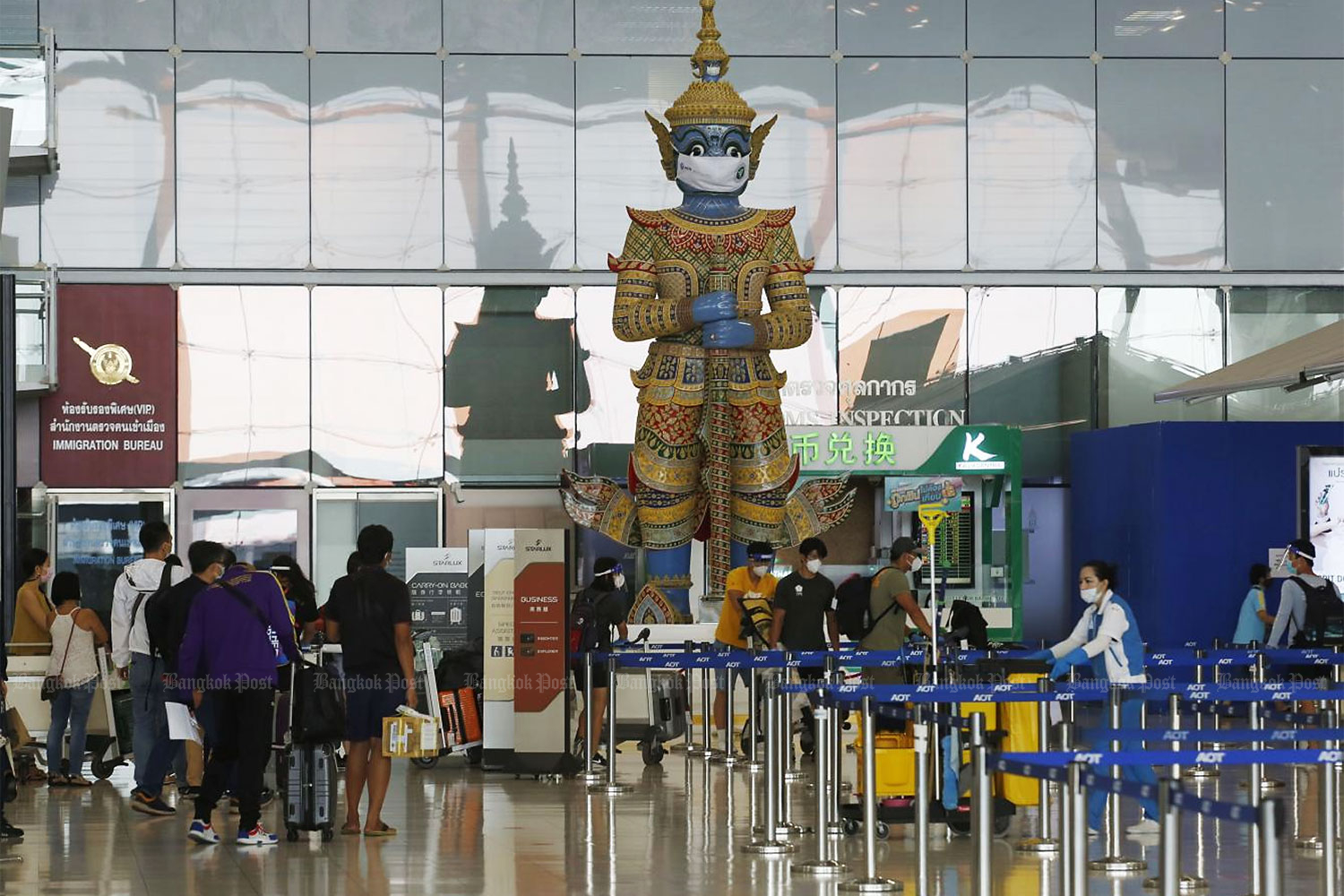
There's something strange and surreal when a flight from India to Thailand takes 10 times longer, and the price is 10 times higher.
The reason is one word -- Covid.
Travelling to Thailand in Covid times has an ultra-dimension of its own.
For a start, a flight to Thailand, during Covid times (from any country), does not mean a mere air ticket. It means a flurry of documents, or should we say "certificates" -- a vaccination certificate, Covid test certificate, health insurance certificate, COE certificate.
All these documents assumed a larger-than-life dimension, when Thailand suddenly decided to close its borders to Indian travellers, on May 1.
I was in India to look after my mother who had reacted badly to the Covid vaccine. Fortunately, she recovered soon and I was planning to fly back to Thailand, when came the shock announcement that flights had ended between the two countries.
I literally had two days to pack and leave.
Not an easy feat at all, in Covid times.
I got cracking on the documents -- a health insurance policy for US$100,000 (3.2 million baht), an ASQ Hotel booking for two weeks' quarantine. And to top it all, a super-expensive ticket from India to Thailand, via a distant Middle Eastern country. Why? Because the Middle Eastern airlines were the only ones connecting India to Thailand, as all other flights had stopped.
I managed to get all my documents in record time, thanks to the speed and efficiency of a bunch of insurance, travel, and hotel groups. And a helpful Thai Consul at the Royal Thai Consulate, who granted me the all-important COE Certificate in record time.
It's important to remember that it's the embassies who play a primary role during travel in Covid times. It's they who grant an air ticket to the passenger, not the airlines. To fly from Thailand to India, it was the Indian embassy in Thailand that granted me a seat on the over-booked repatriation flight to my home country. I was lucky to get a seat, and that was purely because of my mother's serious health condition.
A lot of documentation was needed for that trip too -- a national form, indemnity form, self-declaration form.
To be honest, on both my flights, to and from India, I made many mistakes in my documentation, was rejected many times, and had to re-do the process again and again.
But one learns from mistakes, and when one has to leave a country in two days' time, one learns doubly fast.
I was relieved that I had finished all my documentation on time, that I was packed and ready to leave, and that's when I made a disturbing discovery -- I had forgotten to take my second dose of Covid vaccine.
I was due for it, but in the mad flurry to complete the documentation for my flight, I had forgotten all about it.
The vaccine roll-out in India is pretty impressive. One can book a vaccine in a hospital on a common app that is valid for the whole country. The vaccine date depends on the availability and demand, of course, keeping in mind the mega population of the country.
In the small town I lived in, there was a government-run primary health centre distributing free, walk-in vaccines right outside our apartment complex, and there were several such centres all around the town.
I opted to have my first vaccine dose (AstraZeneca, known as Covishield in India) at a private hospital and it was an excellently organised process, costing only the equivalent of 125 baht.
But on the day that I wanted my second dose (which was also the day of my long journey to Thailand), that vaccine was in short supply.
After several unsuccessful phone calls to various hospitals in the city (where my family had ID cards), I was told that a distantly-located one had a limited supply, and I could go early in the morning and check-in.
I was there just after sunrise, and got the great news that they had one vial of my vaccine! Miracles do happen, even in Covid times.
But taking a Covid shot on the day of travel is not the best idea at all, especially if one has to take multiple international flights across two countries, and reach a third one, like me. However, I had no choice. I had a 10-hour halt in an Indian city, and a 14-hour halt in a Middle Eastern one.
How did I survive? By swallowing a pile of tablets prescribed by our family doctor (analgesic, antibiotic, antacid -- you-name-it), and hydrating myself with plenty of water. That worked.
I cleared the body temperature checks at every airport, including the final one in Bangkok.
I was warned that Thai immigration officials were rough and tough. But I found them pleasant and efficient.
My documents/certificates were thoroughly scrutinised, and fortunately were all in order (I shudder to think, if they were not).
After that, I was whisked off in a waiting car to my ASQ Hotel.
And so began the last saga of my long and eventful Covid-journey.
My hotel was comfortable, the food excellent, service impeccable. But being "locked in" for 14 days was not a pleasurable experience at all.
No room service, all food left outside the door, windows and doors of room locked at all times. The only outing was to go for the Covid tests, and they were tantalisingly located near the swimming pool.
I realised that the reason for the 14-day quarantine-stay in Bangkok is that every traveller is treated as a Covid-plus patient throughout their stay, even they test Covid-minus throughout their stay.
Day 15 finally arrived, and I was given a quarantine certificate. To me, it was a certificate of survival. The whole Covid journey, in fact, was one of total survival.
But isn't that what this pandemonium is all about?
Lekha Shankar is a Bangkok-based arts and lifestyle writer from India.
